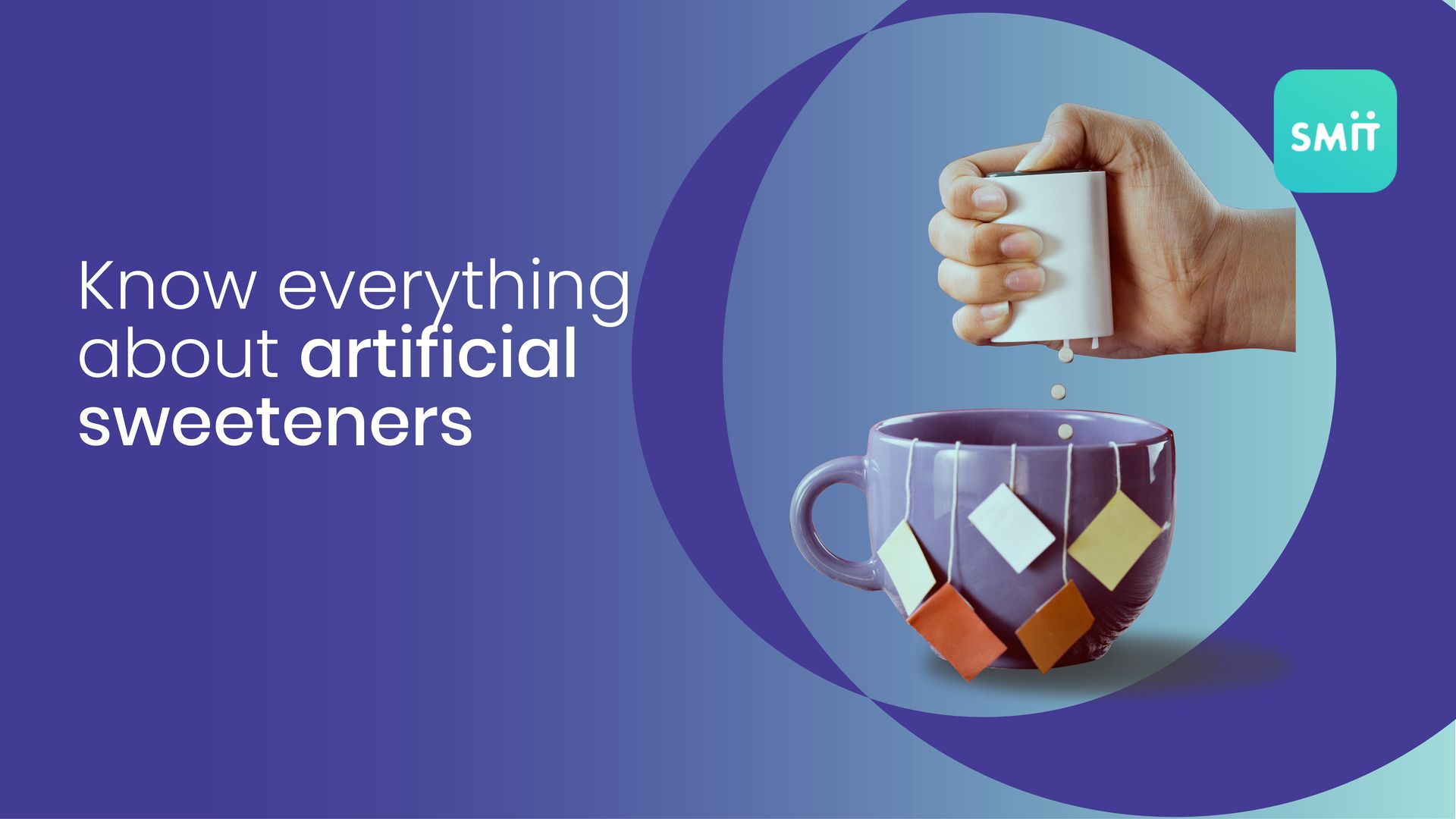Artificial Sweeteners as a sugar substitute: Are they really safe?
In recent years, the inclination towards health and fitness has increased. Due to urbanization, sedentary lifestyle, excessive consumption of artificial sweeteners and sugar substitutes, especially saturated fats, the Indian population is leading to obesity. Since obesity is the primary factor behind Type 2 diabetes, India is expected to become the diabetic capital of the world by 2030. So today there is a growing health awareness for food products that support better health. There is an increasing demand for a greater variety of calorie food products. Sugar is an inseparable part of our food but consuming artificial sweeteners or sugar substitutes is not good for our health.
What are artificial sweeteners?
Sugar substitutes are chemical or plant-based substances used to sweeten or enhance foods and drinks. These are called “artificial sweeteners” or “sugar substitutes.” They can be used as a table top sweetener (for example, to sweeten a glass of iced tea) and/or as an ingredient in processed foods and drinks
Artificial sweeteners are a type of sugar substitutes which means any sweetener which is used instead of normal table sugar. These are synthetic substitutes but can also be made from some naturally occurring herbs. These artificial sweeteners are also called as non-nutritive sweeteners (NNS)/low-calorie sweeteners/intense sweeteners and provide intense sweetness and almost no or a few calories per gram and are used in beverages, food products, drugs, and even mouthwashes.
The Food and Drug Administration (FDA) has approved five artificial sugar substitutes: saccharin, acesulfame, aspartame, neotame, and sucralose. Stevia plant has also been approved by FDA which is a natural low-calorie sweetener.
Therapeutic uses-
- Weight control– Artificial sweeteners have nearly no calories, so these can be a good sugar alternative for weight loss if one is trying to lose weight or prevent weight gain.
- Type 2 Diabetes– Since artificial sweeteners are not carbohydrates so unlike natural sweeteners these generally do not raise blood sugar levels.
- Dental care– Sugar substitutes are not fermented by the microflora of the dental plaque, thereby preventing the damage to the teeth.
Non therapeutic uses—
- As a sugar substitute– Studies conducted by sensory evaluation panels show that aspartame’s taste is very similar to the taste of sugar. So, it is used instead of white sugar in various foods.
- Enhances and extends flavours– Aspartame has the property to intensify and extend fruit flavours, such as cherry and orange, in foods and beverages. Aspartame makes chewing gum taste sweet and more flavourful.
- Avoiding processed foods– People can opt to substitute refined white sugar with less-processed sugars such as fruit juice or maple syrup.
- Cost-Many sugar substitutes are cheaper than white sugar.
The American Heart Association (AHA) and American Diabetes Association (ADA) have given a cautious nod to the use of artificial sweeteners to combat obesity, metabolic syndrome, Type 2 diabetes and cardiovascular diseases.
Are they effective and really safe?
Most of these NNSs are not metabolized in the body and are thus considered safe for consumption. But there are prevailing concerns over toxicity of “non-metabolized” compounds in preclinical models. Studies have shown that only extensive NNS use (>1680 mg/day) leads to an increased risk of bladder cancer in humans.
A follow-up study conducted in the UK showed that consuming 2 or more servings of NNS-containing diet soft drinks increased the risk of coronary heart disease and chronic kidney disease in comparison with consuming <1 serving per month.
Artificial NNS when consumed in daily acceptable allowance can help in limiting carbohydrate and energy intake and can work as a tool to manage weight and blood glucose level. The American Dietetic Association states that NNS should not be used in children <2 years of age and minimal or totally restricted during pregnancy and lactation, even though the FDA has declared the use as not unsafe.
What are some alternatives to artificial sweeteners?
Unlike other sugar substitutes, Stevia comes from a plant source. Similar to artificial sweeteners, it doesn’t add any extra calories. Research is always being done, but most experts agree that stevia is a healthier alternative when compared to artificial sweeteners; however, we need to be cautious.


0 Comments